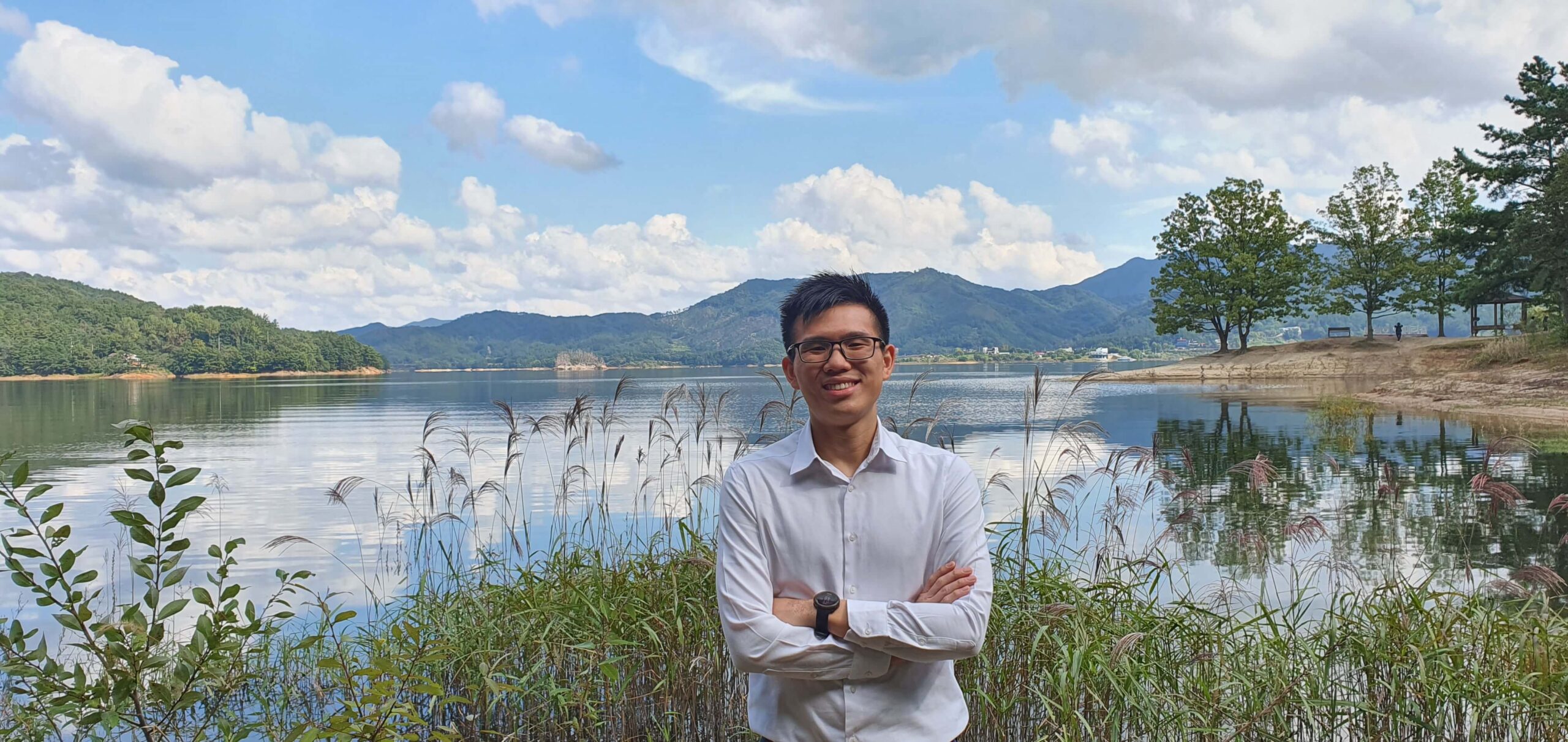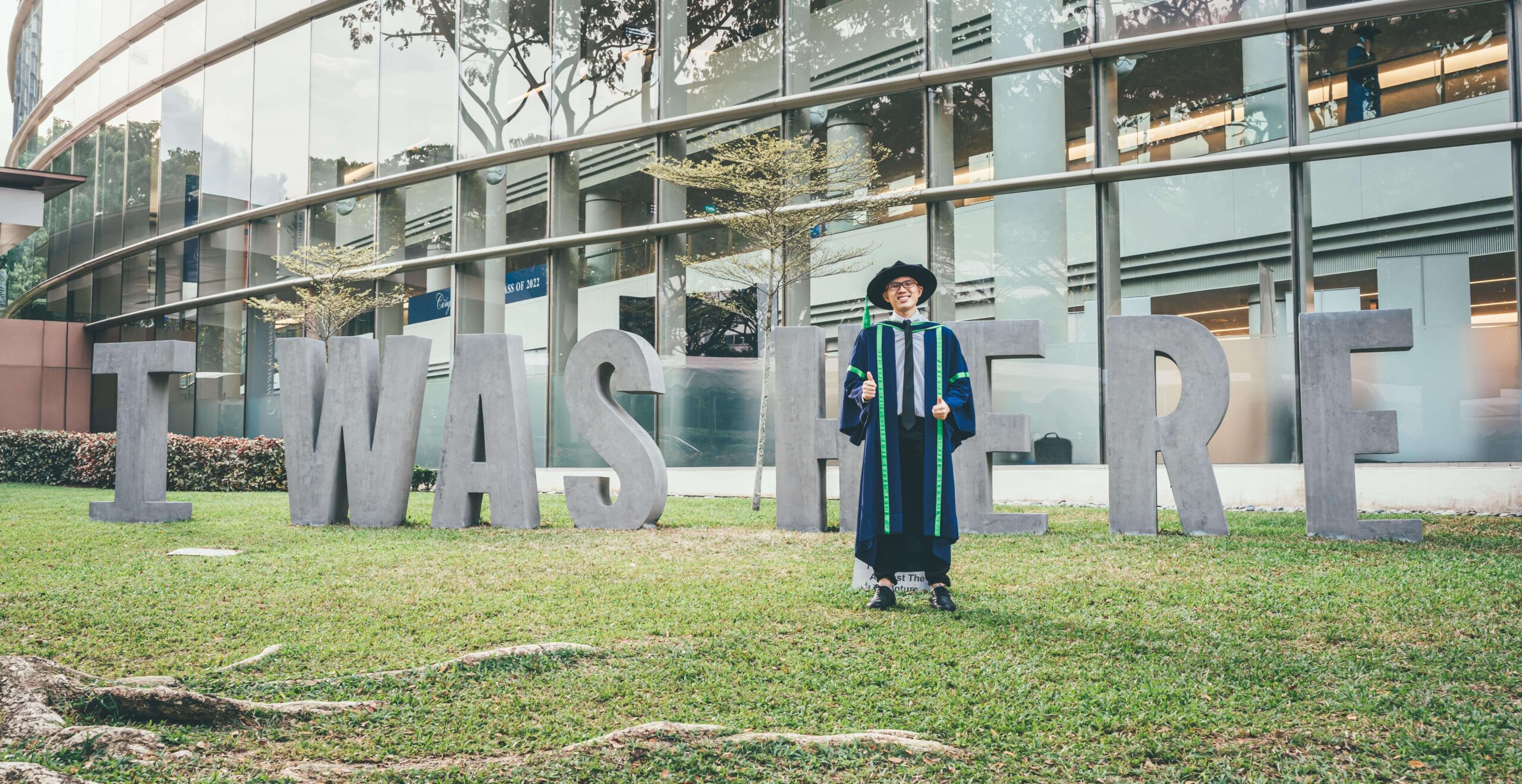Nicholas Cheng
[PhD 2022]

As I reflect on the past nine years from my personal life and being in the Department of Physics, I found that one of the most important things that enables me to move forward is people.
Cheng Lin Quan Nicholas
In my Junior College days, a series of events in my personal life, combined with a fascination on how my physics teacher brought the subject to life, led me to decide to pursue physics in the university. I am thankful to do well enough in my A levels to secure a place in NUS.
I then embarked on my academic journey at the Department of Physics in 2013 as a freshman. I recall joining the Physics Orientation Day (we didn’t have Physics Orientation Camp in those days! Some of my batchmates then spearheaded the inaugural Physics Orientation Camp in 2014) where I would hear from seniors on how university physics was a big jump from what was taught in the past. Together with my batchmates, we would struggle through different modules. One notable module then was Classical Mechanics where I remember there was a really difficult assignment question to be done over the recess week, which stretched our mathematical abilities to the limit despite being given two weeks to complete it. I don’t recall if anyone was able to complete it in the end.
Apart from coursework, I am glad to be given the opportunity to pursue UROPS projects by two different professors, whom I had to turn down due to my personal church commitments. Despite so, through a series of events I was blessed to be able to undertake research for my final year project with A/Prof Quek Su Ying, where I first learned how to simulate scanning tunnelling microscopy (STM) images of 2D material heterostructures using first-principles quantum mechanical calculations. Her dedication to doing good science led me to eventually pursue a PhD degree under her tutelage.

After four years and millions of CPU hours (equivalent to running calculations on a personal quad-core laptop non-stop for about 300 years) spent on our research group’s computational resources and ASPIRE 1, the flagship supercomputer of National Supercomputing Centre Singapore (NSCC) (I am also very thankful for NSCC staff who pushed out many of my calculations in the last stages of my PhD!), I submitted my PhD thesis in August 2021 and successfully defended my thesis a few months later with two papers (one co-first author and one first author) published in high impact journals.
I then undertook a Research Fellow position where I continue to use first-principles quantum mechanical calculations to understand a variety of phenomena such as energy level alignments, magnetism and non-linear optical properties in 2D materials at the atomic level. I plan to be here for about a couple more years before looking for another position abroad to broaden my horizons.
As I reflect on the past nine years from my personal life and being in the Department of Physics, I found that one of the most important things that enables me to move forward is people. In today’s time and age, it is too easy to focus only on me, myself and I. I learned the importance of looking out for people around me holistically. Beyond the struggles in their work and academics, there are personal struggles that each one has to go through. I am thankful for this academic journey that positions me to understand the struggles that each one has to go through in pursuing a physics education, and beyond that, to find hope in a world that is marred with challenges on multiple fronts.
Overall, I am excited to be able to do good science in the years to come, and in the process, I desire to grow holistically together with people around me to make a difference to the world.
